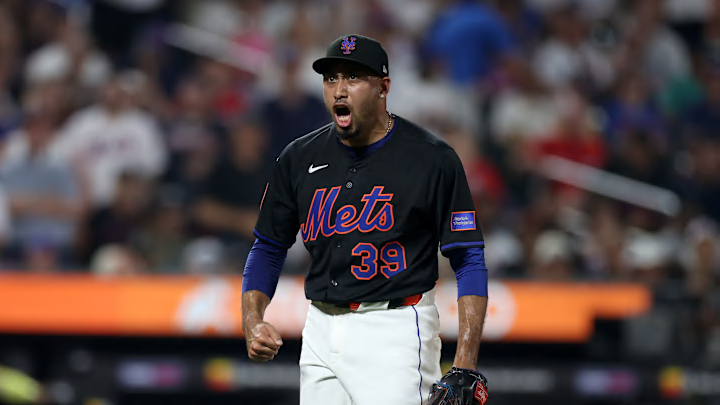Edwin Díaz didn’t need much help strengthening his case this winter, but the Atlanta Braves just handed him a gift. By locking up Raisel Iglesias on a one-year, $16 million deal, one of the few true ninth-inning alternatives came off the board in a hurry. For the New York Mets front office already staring down the possibility of having to replace an elite closer, Atlanta’s decision does more than settle its own bullpen, it narrows the path for anyone trying to find a Plan B instead of paying Díaz what he’s looking for.
This is exactly the kind of market shift that agents dream about. Díaz already hit free agency with leverage after choosing to walk away from the final two years and $38 million on his previous five-year, $102 million contract. Now, with a division rival crossing “find a star closer” off its to-do list and writing a hefty check to do it, the remaining suitors know there’s one less big spender in the room. For the Mets, that means any hopes of a soft market doing some of the work for them just took a serious hit.
Raisel Iglesias staying in Atlanta is the Edwin Díaz boost Mets didn’t need
On performance alone, Díaz was always going to sit at the top of this class. At 31, he’s coming off a 2025 season that looked every bit like the best version of “Narco” returning to form: 28 saves in 31 chances, a 1.63 ERA over 66.1 innings, and a ridiculous 0.87 WHIP with 98 strikeouts.
There are other intriguing arms out there — Robert Suarez, Devin Williams, Ryan Helsley — but none combine Díaz’s recent track record, strikeout punch, and proven ability to handle New York’s spotlight. With Iglesias staying put in Atlanta, Díaz now stands even taller as the premium finishing piece available. That kind of separation matters when front offices are lining up internal presentations, because owners don’t like hearing, “If we don’t get this guy, there’s no comparable option.”
The Mets, for their part, have tried to protect themselves. They slapped a $22.025 million qualifying offer on Díaz, which he understandably declined, and at least set themselves up to receive a compensatory 2026 draft pick if he signs elsewhere. That’s fine as a safety net, but it’s not a strategy. Everyone in Queens knows a draft pick doesn’t help you when you’re trying to win games in the ninth inning next summer.
Meanwhile, Díaz’s agent is reportedly aiming for a contract that lives in the same neighborhood as his last record-setting five-year, $102 million deal — and thanks to the way this market is unfolding, it’s getting harder to argue he won’t find something close.
The real complication for the Mets is who’s still lurking. The Blue Jays, Dodgers, Cubs, and Orioles have all been floated as potential landing spots, and they each check familiar boxes: contending windows, payroll capacity, and bullpens that could use a true lockdown closer to push them over the top. Every time a club like Atlanta removes itself from the bidding while paying $16 million for a single year of Iglesias, it only reinforces what Díaz can reasonably ask for on a multi-year pact.
If that number creeps up beyond New York’s comfort zone, it’s not because the market got irrational — it’s because teams decided they’d rather pay for certainty at the end of games than live with regret.
So where does that leave the Mets? Either they step up and pay closer money for an arm who’s clearly in his own tier, or they watch him trot out of someone else’s bullpen to the same music that once turned Queens into a party and now makes it wince.
